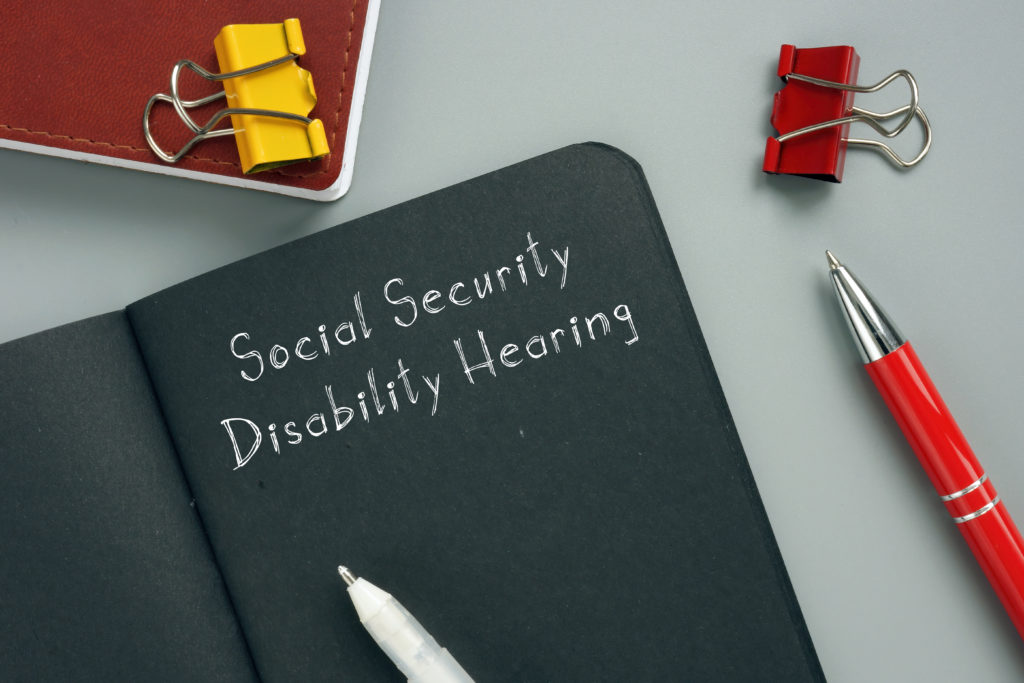Waiting for the outcome of a Social Security disability hearing can be a stressful time. If you’ve been searching online for signs that you might not have been successful, this article can help.
Understanding the Process
Social Security disability benefits are awarded to individuals with severe medical conditions that significantly limit their ability to work. The application process can be complex, and initial applications are often denied.
If your initial application is denied, you have the right to appeal the decision and request a hearing with an Administrative Law Judge (ALJ). The ALJ will review your medical records, assess your limitations, and consider testimony from medical professionals and vocational experts before issuing a decision.
Important Note: Every Case is Unique
While this article explores some common reasons why a disability claim might be denied after a hearing, it’s important to remember that every situation is unique. The information below should not be taken as a guarantee of the outcome of your specific case. The best way to understand your situation is to consult with an experienced disability lawyer.
Here are some of the common signs that a disability claim may not be successful after a hearing:
- Limited or Missing Recent Medical Evidence
The ALJ relies heavily on medical evidence to determine the severity of your condition and its impact on your ability to work. If you have limited or no recent medical records documenting your condition and treatment, your claim may be less persuasive.
Here are some tips for strengthening your medical evidence:
- Maintain consistent medical care with a qualified physician who understands your condition.
- Ensure your medical records accurately reflect your symptoms and limitations.
- Follow all treatment recommendations from your doctor, including attending appointments, taking medication as prescribed, and undergoing necessary tests.
- Non-Adherence to Treatment
The ALJ will consider whether you are following your doctor’s treatment plan. If you are not taking prescribed medication, attending physical therapy, or otherwise complying with treatment recommendations, it may raise questions about the severity of your condition and your commitment to improvement.
There may be legitimate reasons for not adhering to treatment, such as medication side effects or financial constraints. If this applies to you, be prepared to explain the situation to the ALJ and provide any documentation that supports your explanation.
- Return to Work Since Application

The Social Security Administration defines disability as the inability to perform “substantial gainful activity” (SGA), which has a specific earnings limit set each year. If you have returned to work and are earning above the SGA limit since filing your initial application, it could suggest that your condition may not be as severe as initially claimed.
Here are some nuances to consider:
- Short-Term Work: Brief attempts to return to work, especially if unsuccessful, may not necessarily harm your claim.
- Earnings Below SGA: Even if you have returned to work, earnings below the SGA limit may support your claim, especially if the work is marginal or requires significant accommodation.
- Concerns Raised by Your Disability Lawyer
Disability lawyers are experienced advocates who understand the complexities of the Social Security disability process. If your lawyer expresses concerns about the strength of your claim or the ALJ assigned to your case, it’s important to take those concerns seriously.
Here are some reasons a lawyer might be concerned:
- Incomplete Medical Records: Missing information or inconsistencies in your medical records could weaken your case.
- Unfavorable ALJ: Some ALJs have higher denial rates than others. Your lawyer may be familiar with the tendencies of the specific ALJ who heard your case.
What to Do if You Lost Your Hearing
If you receive an unfavorable decision from the ALJ, you have the right to appeal. An experienced disability lawyer can advise you on the best course of action and help you navigate the appeals process.
Here are some steps to take after a denial:
- Contact your Disability Lawyer: Discuss the denial with your lawyer and explore your appeal options.
- Gather Additional Evidence: If there is new medical evidence or other information that strengthens your claim, this can be helpful for the appeal.
- Meet Deadlines: The Social Security Administration has strict deadlines for filing appeals. It is crucial to meet these deadlines to preserve your right to appeal.
Getting Help with Your Disability Claim
The Social Security disability process can be overwhelming. If you are considering applying for benefits or have been denied benefits, consulting with a qualified disability lawyer is a wise decision. A lawyer can help you understand your rights, navigate the application process, gather necessary evidence, and represent you at hearings and appeals.

